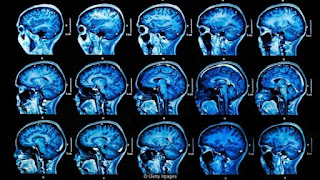Changes Observed in Brain
Alzheimer’s disease is an irreversible, progressive brain disorder that slowly destroys memory and thinking skills, and eventually the ability to carry out the simplest tasks. In most people with Alzheimer’s, symptoms first appear in their mid-60s. Estimates vary, but experts suggest that more than 5 million Americans may have Alzheimer’s.
Scientists continue to unravel the complex brain changes involved in the onset and progression of Alzheimer’s disease. It seems likely that damage to the brain starts a decade or more before memory and other cognitive problems appear. During this preclinical stage of Alzheimer’s disease, people seem to be symptom-free, but toxic changes are taking place in the brain. Abnormal deposits of proteins form amyloid plaques and tau tangles throughout the brain, and once-healthy neurons stop functioning, lose connections with other neurons, and die.
The damage initially appears to take place in the hippocampus, the part of the brain essential in forming memories. As more neurons die, additional parts of the brain are affected, and they begin to shrink. By the final stage of Alzheimer’s, damage is widespread, and brain tissue has shrunk significantly.
Speaker Opportunities are available at the International #Conference on #Alzheimers, #Dementia and Related #Neurodegenerative #Diseases... Join us at Madrid, Spain on 27-28 August, 2018.https://bit.ly/2Izz5FY




Comments
Post a Comment